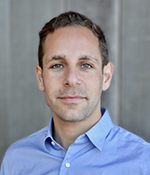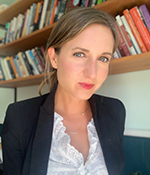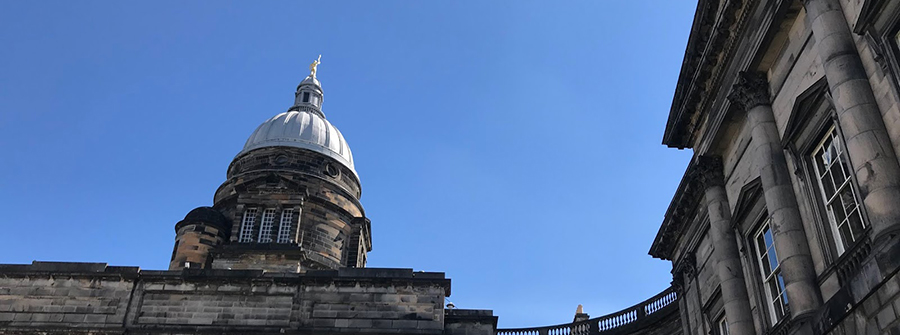Genetics, Pandemics, and Society in Edinburgh
Why you should go
Edinburgh’s historic and continued importance as a site for scientific innovation makes it the ideal site to explore a range of themes in the history of public health and genetics. As a center of the European Enlightenment, it was home to important revolutions in scientific thought, medicine, and later, advances in tropical medicine and the development of global health as well as phrenology and genetics. This can be seen in the built environment—the links on Burgh Muir and Leith cover the ancient burying grounds of plague victims—as well as the National Museum of Scotland where one-time-local Dolly the cloned sheep is on display in the science and technology galleries. The University of Edinburgh itself has long been a major center for medical and bioscience research, as well as a world-leader in the social studies of science and medicine. Finally, Edinburgh is one of the most beautiful, culturally rich cities in Europe.
Courses
Faculty Leaders
Daniel Navondnavon@ucsd.edu
 Daniel Navon is an Associate Professor in the Sociology Department. He teaches classes in the sociology of science and medicine, historical sociology, and qualitative methods. His 2019 book, Mobilizing Mutations: Human Genetics in the Age of Patient Advocacy, explores how genetics is reshaping medical classification, patient care, and personal identity. Before going to Columbia University to pursue a PhD in Sociology, he was a philosophy major at the University of Edinburgh -- and he can't wait to introduce students to the beautiful "Athens of the North"!
Daniel Navon is an Associate Professor in the Sociology Department. He teaches classes in the sociology of science and medicine, historical sociology, and qualitative methods. His 2019 book, Mobilizing Mutations: Human Genetics in the Age of Patient Advocacy, explores how genetics is reshaping medical classification, patient care, and personal identity. Before going to Columbia University to pursue a PhD in Sociology, he was a philosophy major at the University of Edinburgh -- and he can't wait to introduce students to the beautiful "Athens of the North"!
Claire Edington
cedington@ucsd.edu
 Claire Edington is an Associate Professor in the History Department where she teaches classes on the history of public health, the history of modern Southeast Asia, and the colonial and postcolonial studies of science and medicine. Her research examines the way medical experts, state institutions and popular beliefs shaped the lives of marginalized people in Vietnam throughout the twentieth century. She received her PhD from the Departments of Sociomedical Sciences and History from Columbia University in 2013.
Claire Edington is an Associate Professor in the History Department where she teaches classes on the history of public health, the history of modern Southeast Asia, and the colonial and postcolonial studies of science and medicine. Her research examines the way medical experts, state institutions and popular beliefs shaped the lives of marginalized people in Vietnam throughout the twentieth century. She received her PhD from the Departments of Sociomedical Sciences and History from Columbia University in 2013.
Who should go
This Global Seminar will be valuable for sociology and history majors, as well as pre-med, bioscience, and global/public health majors and minors interested in understanding the broader social context of their chosen fields of study. Consult your academic advisor to determine officially how the courses will apply to your graduation requirements.
Information Sessions
- General (choose one):
- Tuesday, Sept. 30th, 3:00-4:00pm PST (zoom)
- Tuesday, Oct. 28th, 3:30-4:30pm PST (in-person)
- Program Q & A:
- Thursday, Jan. 15, 3:00-4:00pm PST (Zoom)
- Thursday, November 6, 3:30-4:30 PST (zoom)
- Register: For the live Zoom link, and/or to get the post-session recording.
- Information session presentation (pdf)
Dates
| Departure from U.S.: | Sat., June 27, 2026 |
|---|---|
| Arrival: | Sun., June 28, 2026 |
| Mandatory Orientation: | Mon., June 29, 2026 |
| First Day of Class: | Tues., June 30, 2026 |
| Last Day of Class: | Fri., July 31, 2026 |
| Departure for the U.S. (or personal travel): |
Sat., August 1, 2026 |
Flight Information
- You will be responsible for purchasing your own airplane tickets, and your program coordinator will provide guidelines and resources during the pre-departure process to help you find an appropriate flight.
- Do not purchase plane tickets until the program is confirmed. All approved applicants will be notified by e-mail when the program has reached minimum enrollment.
Global Seminar Fees
All fees subject to change. See https://summersession.ucsd.edu/tuition/tuition.html for current tuition and campus-based fees.
| UCSD | Other UC | Non-UC | |
|---|---|---|---|
| Program Cost: (includes $500 administrative fee) |
$7,829.93 | $7,829.93 | $7,829.93 |
| Estimated Tuition and Campus-Based Fees: |
$2,616.49 | $2,666.49 | $3,580.49 |
| Total: (not including airfare or personal expenses) |
$10,446.42 | $10,496.42 | $11,410.42 |
Budget Calculator
- Please use this budget calculator to plan for program expenses
Funding Options
See the funding options page to learn how financial aid and scholarships can help you pay for this program.
Local Site Visits
- The University of Edinburgh’s Anatomical Museum or Surgeons Halls Museum
- Darwin’s Edinburgh residence and the nearby site of the old Plinian Society
- The National Museum of Scotland
- The University of Edinburgh’s MRC Institute of Genetics and Molecular Medicine
- Mass burial sites or “plague pits” dating from 1645 in the Burgh Muir and on Leith Links
- Edinburgh University Library Special Collections – Records of the Royal Public Dispensary of Edinburgh
- Royal Botanic Gardens
Excursions are subject to change without prior notice. No refunds are possible.
Overnight Excursion to Isle of Skye (3 days/ 2 nights)
- Includes three packed lunches, two breakfasts and two dinners.
Housing
- Single room in an off-campus apartment with private bathroom close to the University of Edinburgh and walking distance to the classroom
- Shared kitchen and internet access included
- Linens provided. Students should plan to bring their own towels.
- Cleaning service is not provided. Students will be fully responsible for keeping the space clean or will risk incurring additional charges for any negligence or damages.
Included Meals
- Welcome meal
- Isle of Skye overnight excursion includes three packed lunches, two breakfasts and two dinners.
- Farewell dinner
Classroom and Computer Access
- Classroom space at the Edinburgh Training and Conference Venue on the University of Edinburgh campus
- There is no computer lab available - plan to bring a laptop
- The University of Edinburgh participates in the Eduroam network. Follow these instructions to set up your computer (scroll to the bottom of the page) for access while you are still at UCSD.
- Wireless access may be intermittent due to local conditions. No refunds or price adjustments are possible.
Transportation
- Airport pick up at the beginning of the program; cash stipend equal to the cost of public transportation to the Edinburgh Airport at the end of the program
- Transportation for all excursions that are not within walking distance
Phones
- More information about how to obtain a local SIM card will be provided at the pre-departure orientation.
- Students will be responsible to purchase their own calling time/minutes.
Insurance, Health, and Safety
- Comprehensive insurance package with CISI
- An in-depth orientation will be given on the morning after arrival, including health and safety procedures.
- Program partner staff will be available by telephone after hours.
- All students must register for UC travel insurance. This is free coverage, but registration is required prior to departure.

